What Should Our Response Be to the Deepest Needs of Humanity?
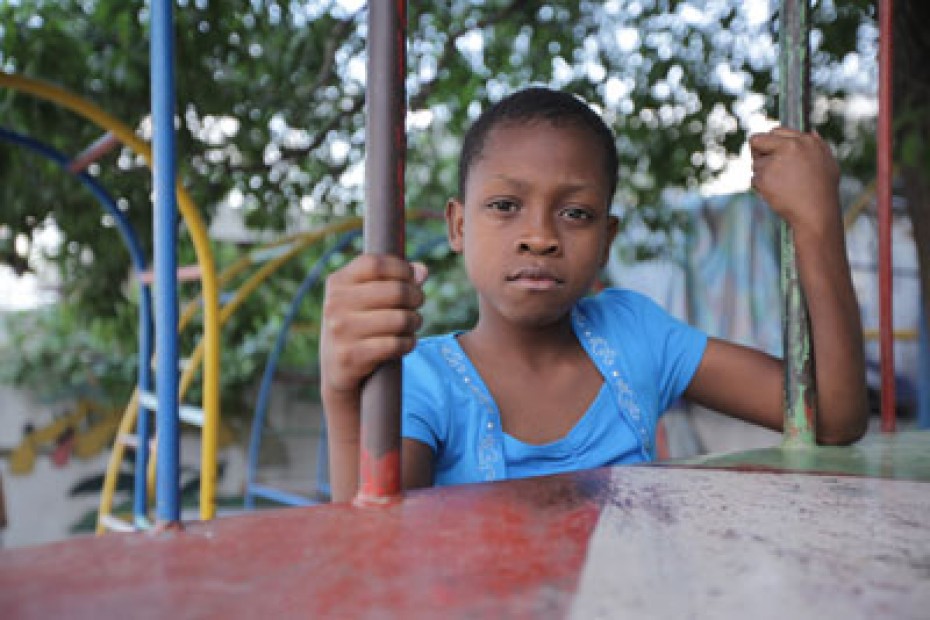
“Compassion is an unstable emotion. It needs to be translated into action, or it withers.” – Susan Sontag
Continue Reading ›How Do You Stay in Your Child’s World?
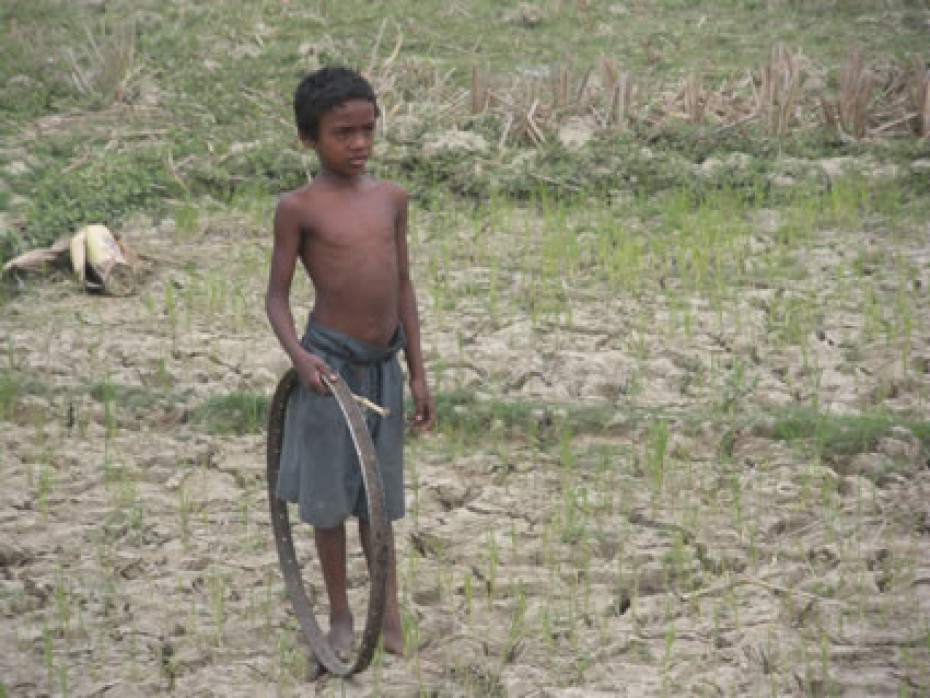
As a Compassion sponsor I don’t want to only connect with my child when I get a reminder from Compassion. I want to be a sponsor who consistently prays for her children.
Continue Reading ›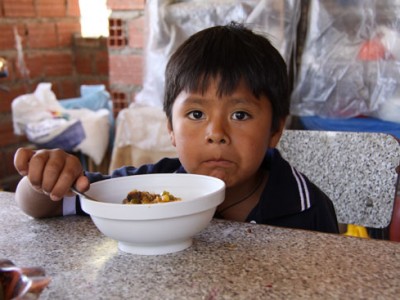
Who Cares About the Poor?
If I cared, I’d be more like Bono or Mother Teresa or even Wess Stafford — someone with influence and name recognition, someone with a story. If I cared, I’d do more, right? If I cared, I’d dedicate my life to serving the poor — as their champion, as their savior.
I Was a Christian Sponge in a Tub of Living Water
I’m a cynic. And I’m a contrarian. When the pop-culture collective is doing something, I usually don’t want any part of it. By staying aloof, I nourish my emotionally wounded soul on a diet rich in the fat of condescension. That’s how I feed my deflated sense of self. That’s how I roll.
Although I’m not always a cynical contrarian, it is often my default viewpoint, and this can be a stumbling block for a social media marketer — cynical contrarians don’t tend to mesh well with marketing objectives. Maybe this is a good thing for you.
In my opinion, most marketing is about numbers. Getting more of something. And by that narrow, cynical definition the One Act video is pure marketing.
But, in my opinion the One Act video transcends the castor oil taste manipulative marketing often leaves me with. And I think that’s because the “one act” this video refers to happened to change my life. I am not a sponsored child, never was, but the act of sponsoring a child took me down a path I never would’ve imagined.
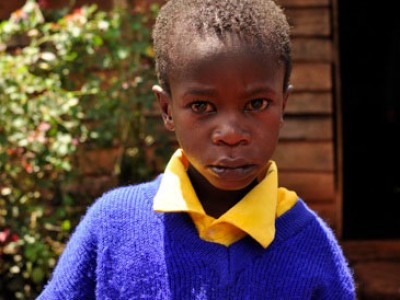
Confessing to Something That Probably Means I’m Human
The poverty in my life is emotional and spiritual. The poverty in the lives of the kids you sponsor and the kids we’re meeting here in Kenya is that and more.
In the Void of Poverty
The running water in my comfy apartment cannot help the hurt in my heart today. The grande nonfat latte I picked up from my favorite coffee shop didn’t help, either.
American luxuries I once looked forward to now feel empty, as nothing fills the void that Africa left.
Someone once said, “Once you get the dust of Africa on your feet, it will never leave you.”
Every day further away from Rwanda, the more I ache to be there. It’s been six weeks since my return from Africa, yet some moments, I feel as if I just stepped off the plane and into this alternate reality called America.
What does a person do after experiencing poverty firsthand? (more…)
Do You Love Your Sponsored Child?
Do you love your sponsored child? Really love your child?
We already know I’m an emotionally disconnected person, so help me out here.
Explain to me how you know that what you feel for your sponsored child is actually love.
Come on y’all. I want to know what love is. Sing it.
Gratitude
Remember the Tanzanian children’s choir I wrote about in my last post? Well, it turns out that their matinee performance that day was only a taste of what was to come — an actual full-fledged concert at Friday’s chapel.
And what I thought was powerful and moving at lunch barely compared to what I experienced on Friday. In fact, it didn’t compare at all.
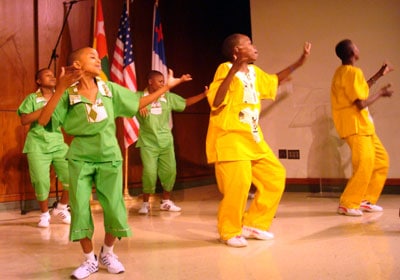
Why Am I Here?
As you may have read recently, the Global Leadership Forum has been in progress all week and all the “big-wigs” are in town talking about . . . stuff. I don’t actually know what they are talking about because I wasn’t invited. But I’m pretty sure that my lunch on Tuesday was better than any silly forum 🙂
When I walked into the New Delhi Café (get it?), I was startled to see most of our tables occupied by little boys and girls . . . FROM AFRICA! A group of about ten kids, roughly eight to twelve years old, from Tanzania were all sitting down having lunch and drinking Cokes. They were bright-eyed, big smiled, beautiful kids.
As I filed in with many others for what we thought would be a normal lunch, I overheard someone say that they were all Compassion sponsored children.
“What an awesome reminder,” I thought to myself. “I’m working for them, their friends, and families.” Despite the fact that they were all well and healthy, I still found myself pitying them because they had to be “sponsored.”
But then, all of the sudden, they stood up, gathered together, started swaying in unison . . . and started singing.
I have never heard anything like it. Besides being on perfect key, they sang in harmony with one another. I can’t begin to tell you just how moving it was to listen to them to sing praises to the Lord. More powerful than their voices, though, were their hearts behind it.
As they sang and swayed, they all either had their eyes closed or their eyes wide open and hands raised to heaven. I never knew the power of a child’s faith until that moment.
And yet these are not just any children. (more…)
The Poverty of ME
Last week, I was in Mexico. On a sponsor tour. And I saw the deepest, darkest poverty of my life.
But I didn’t have to travel to ME, the abbreviation we use when referring to Mexico, to see it. I only had to look at me.
I was in Mexico for the wrong reason. I didn’t go for the children, to become a stronger, more passionate voice for them. To serve them better. To serve you better. I went because I like to travel. I went for me.
There certainly are solid business reasons for me to have gone on the trip, but I didn’t get out of my own way long enough to realize them. I hate that.
How do I redeem the opportunity God gave me and that I squandered? (more…)
Two Weeks Down, Four to Go
To all of you who responded with your encouragement, comments, and ideas, thank you. I cannot begin to tell you just how much I appreciated hearing from all of you. The time and thought you took to read and respond truly blessed me.
Another week has begun and my feeling of being overwhelmed has yet to subside. The good news is this: it is something else that keeps it afloat.
In my first week, I felt that the seemingly endless amount of information and research would overcome any ability I had to unscramble and make sense of it all. But, through much prayer and divine intervention, excitement and inspirations are beginning to summit; brainwaves are coming in with tides of insight.
If you have not noticed already, our society and culture are on the brink of monumental changes as a historically influential and significant generation (the Baby Boomers) are headed towards retirement. It is also no surprise that my generation, Gen Y, having grown up in such a technologically advanced society, are much more globally minded and aware than our parents were at our age. With the help of the internet, orbiting satellites, global political unrest and other end-time achievements, we are fully conscious and concerned about the part we play.
All that to say this: (more…)


